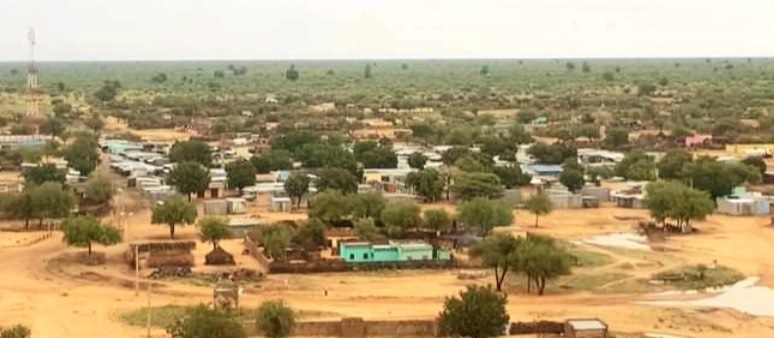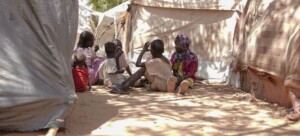Complex conditions in West Kordofan lead to ‘extremely dire’ humanitarian situation

El Fula, capital of West Kordofan (Source: Google Street view, January 2024)
People living in West Kordofan seem to be cut off from the rest of Sudan because of the complex security situation in the state. The residents suffer from hunger, dire health services, and the inability of aid organisations to reach the region. Desperate heads of families marry their daughters off to RSF soldiers in exchange for food and protection.
West Kordofan is currently divided in areas dominated by the Sudanese army and areas controlled by the paramilitary Rapid Support Forces (RSF) which took control of the state capital El Fula on June 20, after a short battle in which several soldiers and civilians were killed.
Howeida Abdelrahman, executive director of the Mizna Charity Organisation, on Friday told Radio Dabanga about the challenges facing civil society organisations in West Kordofan. “One should take care not to side with one of the warring parties, as governance in the state is divided between the two. When launching projects, it is necessary to follow the division between the northern and southern parts of the state,” she explained.
“Yet, the biggest and most dangerous challenge is the security situation. It is really difficult to move between the various localities within the state borders. We now design projects that can be entirely implemented locally, in one place, so that people do not have to travel. Currently, there are Mizna coordinators in six of the state’s eight localities. Experience has proven that we work for the community, and therefore the results are always positive.”
Hunger
Abdelrahman described the humanitarian situation in West Kordofan as “extremely dire, and this is the least that can be said about it. In large areas of the state, people are very hungry, despite the excellent agricultural season this year.”
She continued, “The problem is that most families have lost their already limited sources of income. Although the price of a malwa [3.145 kg] of millet has dropped to SDG2,000 this year, no one is able to buy it as the war has impoverished most of the people here.”
This has led to a significant increase of malnutrition cases. “The latest statistics reported 16,000 cases of malnutrition in West Kordofan’s eight localities. What makes it worse is that local organisations cannot provide solutions, as international organisations are unable to reach the various areas in the state to deliver food to the needy.”
Abdelrahman further stated that the collapse of the health care in the state also seriously affects children and mothers, especially pregnant women.
“Moreover, residents of the southern parts of the state suffer from genetic diseases such as sickle cell anaemia. As the necessary medicines are lacking, many children have already died of the disease.”
Married off
Civil society activist Buseina Hamad confirmed to Radio Dabanga that the displaced in West Kordofan live in “very difficult, catastrophic conditions” and said that they “are not only fled their homes but are suffering from hunger, diseases, and loss of loved ones.”
In El Fula, where she helps displaced people in the many shelters in the city, several displaced families are marrying off their young daughters to RSF officers, she said. “In his way, they hope to get protection and some financial support from the groom.”











 and then
and then